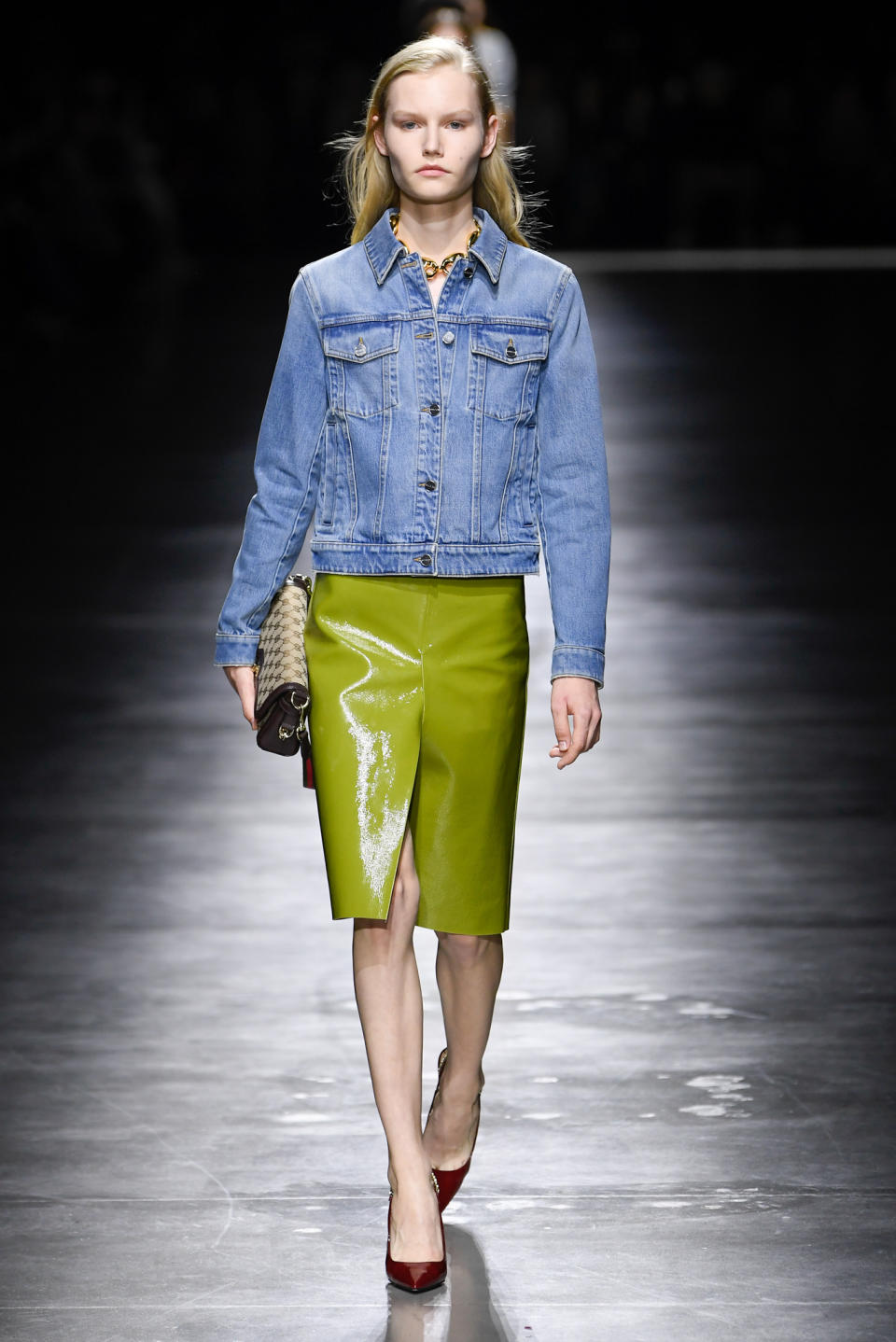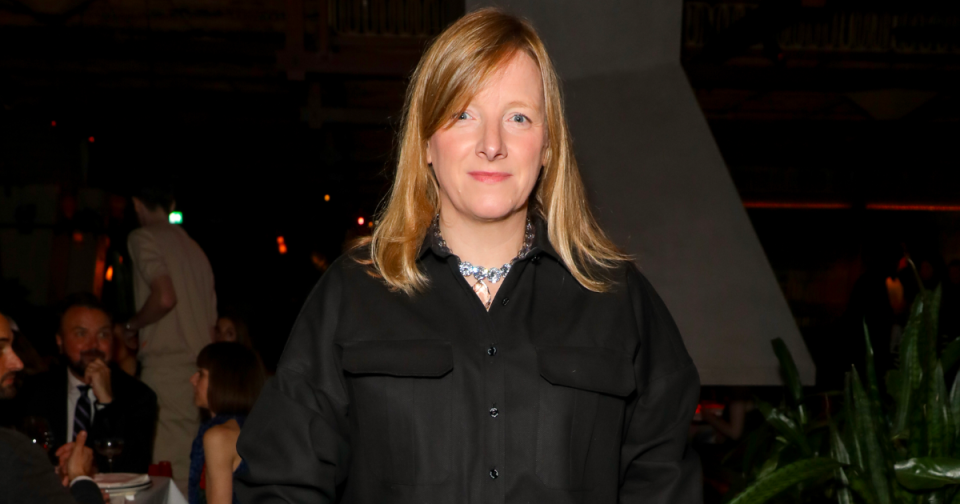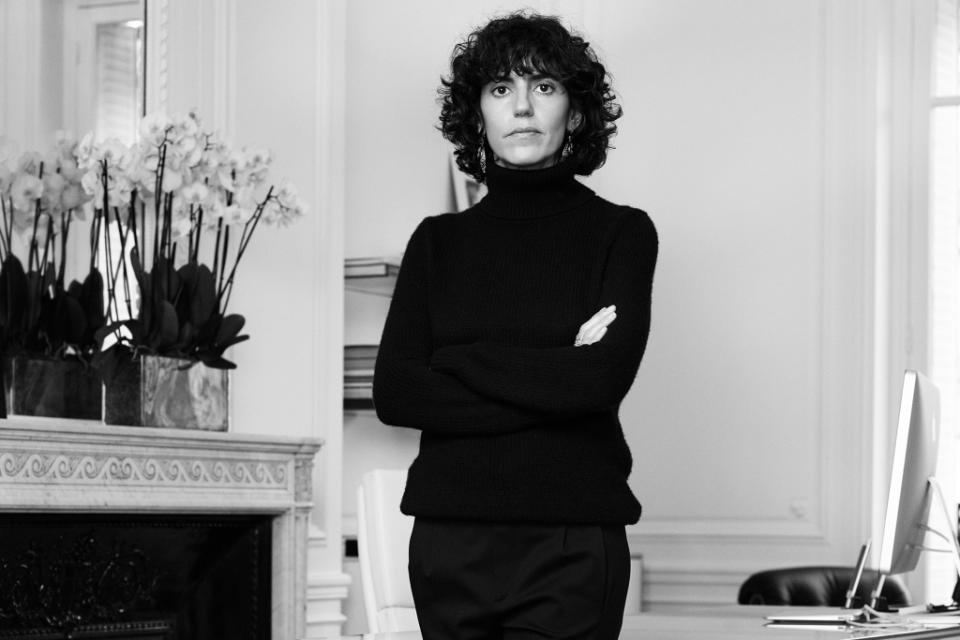Bernstein Downgrades Kering Based on ‘Classic’ Gucci Show, M&A, Management Changes

LONDON — October is bringing more tricks than treats to the big luxury goods groups, two of which have seen their stocks downgraded by industry analysts.
On Wednesday, Bernstein’s Luca Solca downgraded Kering shares to a “market perform” rating from an “outperform” one based on Sabato De Sarno’s Gucci debut; recent M&A activity, and a flurry of management and creative changes at the French group.
More from WWD
Gucci's G Chain Bra Goes Viral With Help From Kim Kardashian
Prada, Axiom Space Partner on Tech, Design for NASA Lunar Space Suits
Dior's New Kicks, Kors' Signature Print, Prada and Magnum Link on an Exhibit
Solca reduced Kering’s share price target to 492 euros from 582 euros, declaring there was “no big bang” in Milan. In short, Bernstein’s team didn’t see enough on Gucci’s spring 2024 catwalk to signal a “fast and material Gucci reacceleration.”
Bernstein also downgraded Gucci’s full-year 2024 growth expectations to 2 percent from 6 percent.
Kering shares were broadly flat, closing at 421 euros in trading on Wednesday.
Bernstein published its report 48 hours after RBC Capital Markets downgraded Compagnie Financèire Richemont’s share price target to 130 Swiss francs from 170 Swiss francs, based on new, and lower, earnings estimates and “moderating” luxury sector trends.
By contrast, both RBC Capital Markets and Bernstein kept their ratings of LVMH Moët Hennessy Louis Vuitton at “outperform.”
In Wednesday’s report, Solca wrote that Bernstein conducted a panel to discuss Gucci’s latest runway show, “and our speakers agreed that De Sarno’s shift to classic makes the collection potentially more commercial.”

“But it also pitches Gucci against more credible incumbents,” such as Prada, Chanel, Dior, The Row and Brunello Cucinelli, he wrote, opining that Gucci only thrives “when it’s over the top.”
Solca noted that the two retailers on Bernstein’s panel “are not going to buy more, and possibly less, than before,” and added that a “softer consumer demand environment in [fiscal 2024] could further exacerbate Gucci’s performance issues. Consumers cut their shopping lists in a slowdown, and Gucci is still in transition. The Kering CEO [François-Henri Pinault] said himself that it will take time for Gucci to find its new footing.”
Solca said senior management changes at Gucci, and at the helm of Kering, “can only add to the lead time” of a turnaround, and there is a real risk that Gucci’s sales growth moves into low-single-digit territory.
Kering’s recent mergers and acquisitions activity, he said, also adds to the crowded senior management agenda.
“The acquisition of Creed and the establishment of the Kering beauty platform seems ambitious. The acquisition of Valentino from Mayhoola adds a new aesthetic turnaround challenge,” he wrote.

It has been a whirlwind year for Kering, which on Tuesday named Sean McGirr creative director of Alexander McQueen, succeeding Sarah Burton, its only female creative head, prompting criticism on social media about its lack of diversity at the group’s designer stable.
Kering had revealed on Sept. 11 that it was parting ways with Burton, who’d been with the brand for 26 years, but did not say why.
As reported, the luxury group has been looking to reshape itself as a dynamic player in an ever-more competitive space and seek new avenues of growth as sales momentum fades at its flagship brand Gucci, as well as at Saint Laurent, Bottega Veneta and Balenciaga.
Over the summer Kering snatched up Creed for a reported $3.8 billion and followed up the deal a few weeks later, agreeing to buy 30 percent of Valentino for 1.7 billion euros. It has an option to take full control of the Italian brand by 2028.
Kering has also been under pressure from activist investors to make a transformational acquisition that would put it on a more equal footing with rival LVMH and make it less reliant on Gucci, which accounted for 67 percent of the group’s operating profit last year.

Kering also had a major management reshuffle, granting wider powers to Saint Laurent chief executive officer Francesca Bellettini. Those changes came against the backdrop of Kering’s weak performance in the second quarter that saw Gucci miss market expectations.
Last month, Solca told WWD he was surprised that Kering would switch creative gears at McQueen at such a busy time.
“It is remarkable that Kering is opening yet another front with the change of creative directors at Alexander McQueen. This only adds to the fish to fry — which were already very abundant,” he said.
In Wednesday’s report, Solca said recent senior management changes and M&A moves at Kering have increased the “risk profile” of the group. “Most importantly, we did not see a ‘big bang’ during Sabato’s debut catwalk, which is the straw that broke the camel’s back.”
The report also outlines some of the main points raised by Bernstein’s panel about the Gucci spring 2024 show.
Solca said panelists agreed that De Sarno’s Gucci “definitely marks a welcome inflection relative to what we had seen with [his predecessor] Alessandro Michele. De Sarno has come to the catwalk with a coherent project, avoiding the trap of trying to please everyone with different things — unlike Riccardo Tisci had done at Burberry.”
The panel said Gucci’s shift to “bon chic, bon genre” fashion makes the collection more commercial, “but there doesn’t appear to be enough originality for a new Gucci ‘dream,’ and the catwalk show looks more like a pre-collection in its being sober and down to earth.”
Solca has packed the report with graphs, charts, photographs and detailed analysis of social-media reaction to Gucci’s show from China’s Little Red Book platform.
One chart shows a spike in Kering’s share price between 2016 and 2021, due to Michele’s “more is more” approach at Gucci, while a photo compilation sets out to prove that De Sarno should work harder on accessories.
“We do not see new hero bags from the show. The Jackie bag and the Bamboo bag have not seen much innovation,” the report stated.
It also pointed out that “softer” consumer demand could further exacerbate performance issues at Gucci.
“We have seen multiple times that consumers putting a foot on the brake [cuts] the number of brands on their shopping list, and [concentrates] their luxury goods budget on ‘must-have’ brands,” wrote Solca, arguing that the other Kering brands “don’t seem to have the ability to offset a continuing, subdued performance from Gucci.”
He also cast doubt on the speed with which Gucci can execute a turnaround, given all of the management changes.
“We would think that the departure of Marco Bizzarri — and of several senior executives below him — is at the very least going to increase the amount of time the Gucci revival will take. The new CEO and the new executives will have to find their feet before reaching full effectiveness.
“A sprint execution of the Gucci turnaround — like the one we had seen in 2016 — seems off the menu. In the absence of an explosive creative reinvention — for which we had potentially been waiting for — this element adds to balance the risk reward in Kering despite the very convenient backstop of a low valuation level, both in absolute terms and relative to other names in the sector,” Solca concluded.
Best of WWD

